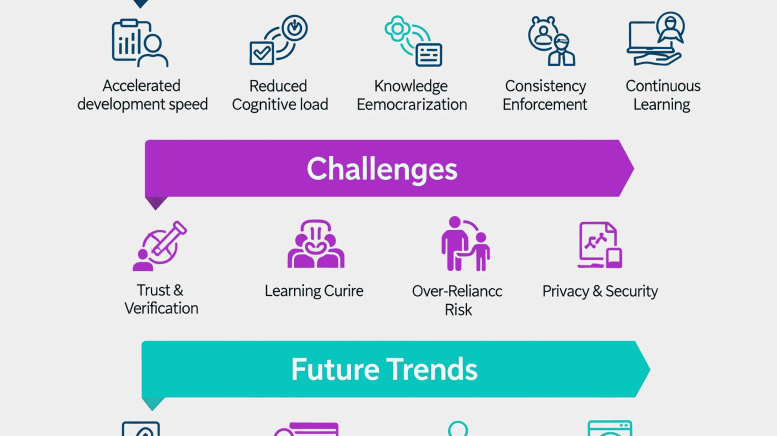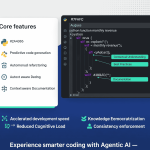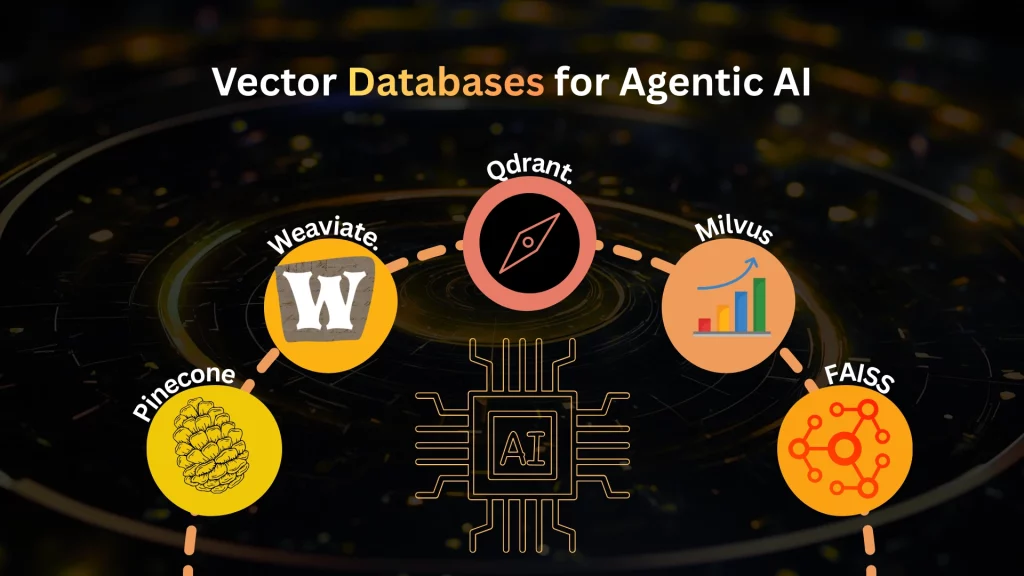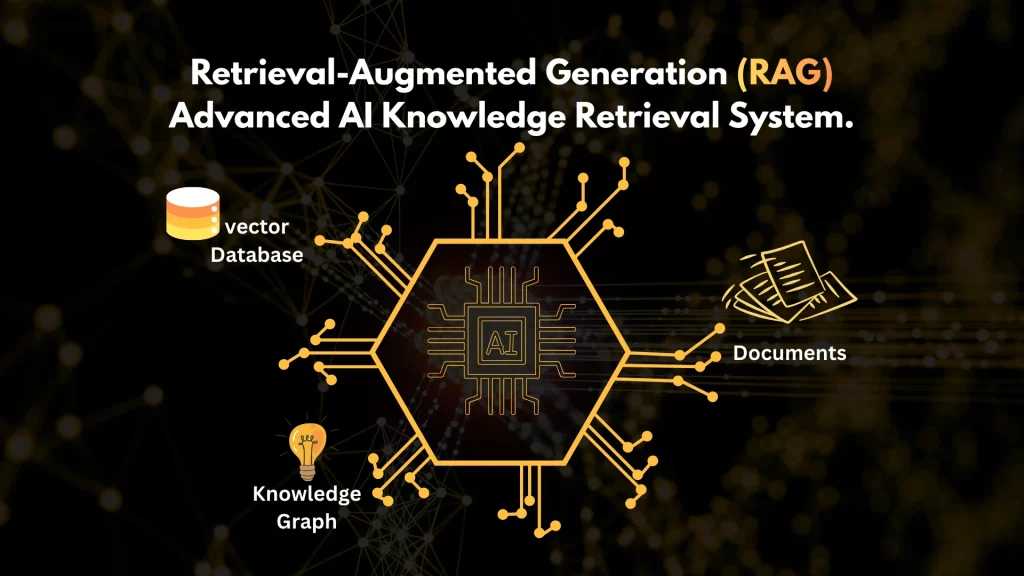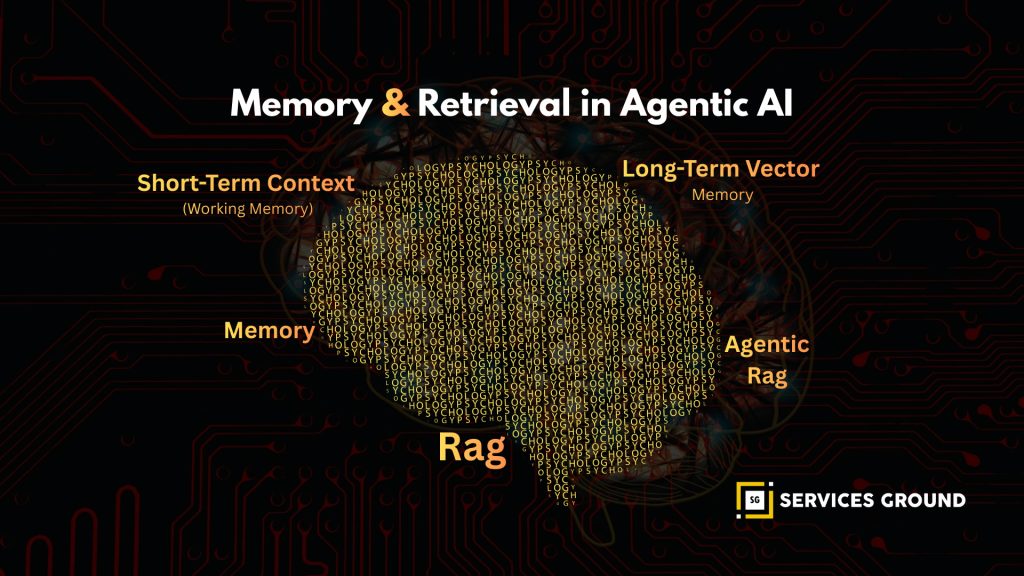In today’s rapidly evolving software development landscape, artificial intelligence has moved beyond being a mere tool to becoming an active collaborator in the development process. At the forefront of this evolution is Agentic AI – a paradigm shift that’s fundamentally changing how developers write, review, and maintain code.
Unlike traditional AI systems that passively respond to queries, Agentic AI takes initiative, understands context, and makes autonomous decisions to assist developers in achieving their goals. This revolutionary approach is transforming IDEs from simple text editors into intelligent coding partners that anticipate needs, suggest solutions, and even write complex code segments with minimal human guidance.
What Makes Agentic AI Different?
Traditional AI systems in development environments have typically been reactive – they wait for explicit commands or queries before providing assistance. These systems excel at specific, well-defined tasks but lack the ability to understand broader context or take initiative.
Agentic AI, by contrast, exhibits several key characteristics that set it apart:
1. Autonomy and Initiative
Agentic AI doesn’t just wait for commands – it actively observes the development context and takes initiative when appropriate. For example, when it notices a developer implementing a common pattern, it might proactively suggest completing the pattern or offer alternatives based on best practices.
2. Goal-Oriented Reasoning
Rather than simply responding to immediate prompts, Agentic AI understands the developer’s higher-level goals. It can reason about the best approach to solve a problem, considering factors like performance, maintainability, and security.
3. Contextual Understanding
Agentic AI maintains an understanding of the broader project context – including file relationships, architectural patterns, and coding standards. This enables it to provide suggestions that align with the existing codebase and project requirements.
4. Continuous Learning
Through interactions with developers, Agentic AI systems continuously refine their understanding of preferences, patterns, and project-specific requirements. This creates a virtuous cycle where the AI becomes increasingly valuable over time.
5. Multi-step Planning
Rather than treating each interaction as isolated, Agentic AI can develop and execute multi-step plans to assist with complex development tasks, breaking them down into manageable components.
Real-World Application: Cursor IDE
To understand the transformative potential of Agentic AI, let’s look at how it’s implemented in Cursor, an AI-enhanced IDE that’s gaining popularity among developers.
Predictive Code Generation
When a developer starts writing a function in Cursor, the Agentic AI doesn’t just offer simple autocomplete suggestions. Instead, it analyzes:
- The function name and parameters
- Surrounding code context
- Project-specific patterns and conventions
- Imported libraries and their typical usage patterns
- Comments and documentation
Based on this comprehensive analysis, it can generate entire function implementations that align with the project’s style and meet the implied requirements.
Developer writes:
def calculate_monthly_revenue(transactions, subscription_plans):
Calculate the total monthly revenue from all transactions and active subscriptions.
Transactions are one-time purchases, while subscriptions provide recurring revenue.
Agentic AI suggests the complete implementation:
def calculate_monthly_revenue(transactions, subscription_plans):
Calculate the total monthly revenue from all transactions and active subscriptions.
Transactions are one-time purchases, while subscriptions provide recurring revenue.
one_time_revenue = sum(transaction['amount'] for transaction in transactions
if transaction['date'].month == datetime.now().month)
subscription_revenue = 0
for plan in subscription_plans:
if plan['status'] == 'active':
subscription_revenue += plan['monthly_fee'] * plan['subscriber_count']
total_revenue = one_time_revenue + subscription_revenue
return {
'total': total_revenue,
'one_time': one_time_revenue,
'subscription': subscription_revenue
}
Autonomous Refactoring
Cursor’s Agentic AI can identify code that could benefit from refactoring and proactively suggest improvements. For instance, if it detects a function growing too complex, it might suggest extracting portions into helper functions, complete with appropriate naming and documentation.
Context-Aware Documentation
When a developer adds a new function or class, Cursor’s AI can automatically generate comprehensive documentation that explains not just what the code does, but how it fits into the broader project architecture – something that requires understanding of the project’s overall structure and purpose.
Benefits for Developer Productivity
The integration of Agentic AI into development workflows offers numerous benefits:
1. Accelerated Development Speed
By generating boilerplate code, implementing common patterns, and automating routine tasks, Agentic AI allows developers to focus on the creative and complex aspects of software development. Many teams report productivity increases of 30-50% after adopting Agentic AI tools.
2. Reduced Cognitive Load
Developers no longer need to keep all implementation details in their working memory. The AI can handle routine aspects while developers focus on architectural decisions and business logic.
3. Knowledge Democratization
Agentic AI can encode best practices and patterns, making them available to all team members regardless of experience level. This helps junior developers learn faster and produce higher-quality code from the start.
4. Consistency Enforcement
By suggesting implementations that follow established patterns and conventions, Agentic AI helps maintain consistency across large codebases, even with multiple contributors.
5. Continuous Learning
As developers interact with and refine AI suggestions, the system learns from these interactions, becoming increasingly aligned with team preferences and project requirements.
Challenges and Considerations
While the benefits are substantial, implementing Agentic AI in development workflows also presents challenges:
1. Trust and Verification
Developers need to verify AI-generated code, especially for critical components. Building appropriate trust levels and verification workflows is essential.
2. Learning Curve
Effectively collaborating with Agentic AI requires developers to adapt their workflows and learn how to guide the AI effectively.
3. Over-reliance Risk
Teams must guard against over-reliance on AI, ensuring developers maintain their fundamental skills and understanding.
4. Privacy and Security
When using cloud-based Agentic AI services, teams need to consider the privacy implications of sharing code with external systems.
The Future of Agentic AI in Development
As Agentic AI continues to evolve, we can expect several exciting developments:
1. Deeper Project Understanding
Future Agentic AI will develop even more comprehensive understanding of project architecture, business domain, and development goals.
2. Cross-Repository Intelligence
AI agents will be able to draw insights and patterns from multiple repositories and projects, further enhancing their ability to suggest optimal solutions.
3. Collaborative AI Teams
Rather than a single AI assistant, we may see specialized AI agents collaborating on different aspects of development – from UI design to database optimization to security analysis.
4. Autonomous Testing and Validation
Agentic AI will increasingly take initiative in generating tests, validating code against requirements, and identifying potential issues before they reach production.
Transform Your Development Team’s Productivity Today
The integration of Agentic AI into development workflows represents one of the most significant shifts in software engineering practices in decades. Teams that effectively leverage these technologies gain substantial competitive advantages through faster development cycles, higher code quality, and reduced technical debt.
At Services Ground, we specialize in implementing Agentic AI solutions tailored to your development environment and team workflows. Our experts can help you:
- Select the right Agentic AI tools for your specific needs
- Integrate AI assistants with your existing development environment
- Train your team to effectively collaborate with AI systems
- Develop custom AI agents optimized for your codebase and domain
Ready to implement Agentic AI in your development workflow? Book a consultation call today!






